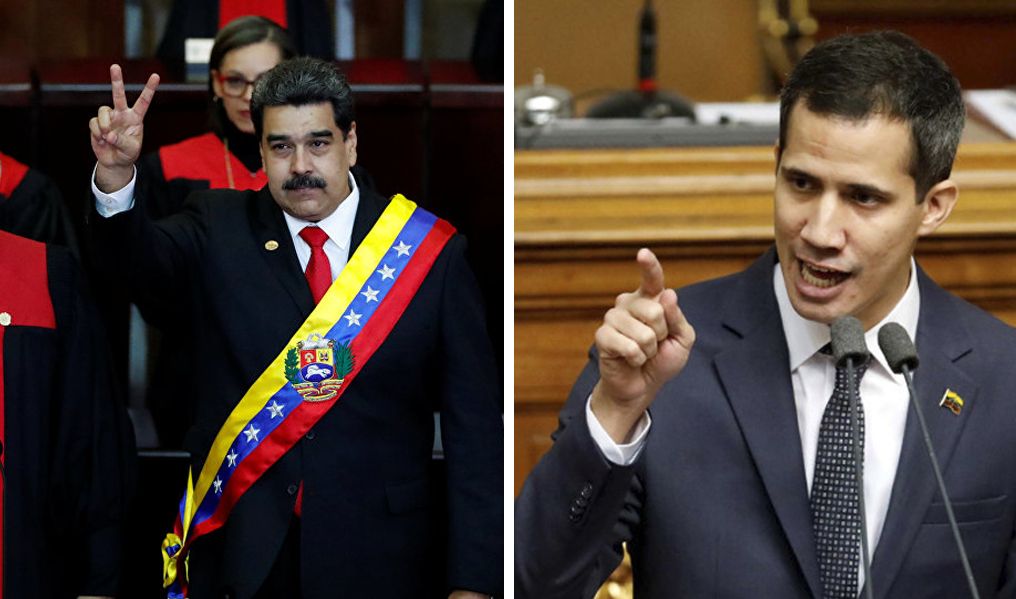POWER PLAY: Conflict arises when Juan Guaido, leader of parliament, declared himself as the legitimate temporary president of Venezuela.
By Esther Whang, Staff Writer
Americans often take the many freedoms in the United States for granted; there are some other countries that don’t give their citizens as much freedom. Chief among these is Venezuela, which is ruled in a totalitarian regime. Currently in charge is Nicolas Maduro, who, after coming into power, acted as he wished without restraint. Not only did he shift around Supreme Court justices, take advantage of his ’emergency rule’ power and sideline the parliament, but also made it so he would keep his position as president without opposition.
Juan Guaido, the leader of Parliament, reacted to Maduro’s actions by utilizing the “constitution’s Article 233, which, in a power vacuum, calls for the person in his role to temporarily assume the presidency…” according to TIME Magazine. By doing this, Guaido claimed that Maduro wasn’t the legitimate president, and instead declared himself the temporary president. Not long after Guaido’s declaration, the American government accepted Guaido as the legal president and pressured Maduro to step down from office. Guaido obtained the support from not only Americans, but numerous Venezuelans who have also come to support Guaido in his pursuit for democracy.
However, regardless of the ample support he has attained, Guaido’s quest for a democracy will be very difficult. The main obstacle standing in his way is Venezuela’s strong military. During his rulership, Maduro managed to build a structure that secured the loyalty of the military and others in power. But it’s not just their loyalty that keeps them from turning against Maduro – they also worry about what may happen to them if Guaido succeeds in his fight for freedom. “‘The military does not just fear losing influence,’” Diego Moya-Ocampos, a Venezuela analyst at IHS Markit said. It also worries about being crushed for rebelling, or facing punishment if there is regime change. If Maduro goes down, the military will go down with him.
Guaido is offering a solution to this problem that could help turn the military over to their side. By promising reprieve for anyone who aides in overturning Maduro’s corrupt authoritarian government, the military might rethink their loyalty to Maduro.
In an interview with TIME Magazine, Maduro “claims that he has held clandestine meetings with members of the military and that Maduro’s grip is weakening.” This offers hope to Guaido; if he succeeds in winning the military over to their side, there’s a higher chance of taking back their country once and for all.
Even so, Maduro has influential allies, including the Chinese and Russian government, which continue to invest and buy into Venezuela’s corrupt government. Once U.S. businesses leave Venezuela, they can come in and assume control over Venezuela’s oil, due to the sanctions placed on Venezuela.
Ever since Maduro took the role of president, the Venezuelan economy has faltered. “In two years, underinvestment in equipment and lack of expertise have halved production to 1.1 million barrels per day – the lowest it has been for almost 70 years,” TIME Magazine writer Andrea Hernandez stated. A new leader like Guaido would offer a more promising future for Venezuela as president. Although the path to a better future for Venezuela may be arduous, as long as the driven leader Guaido is leading the way, hope will prevail for the long oppressed people of Venezuela.

